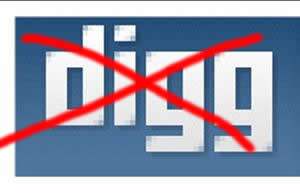This passage on the role of the Net in the rebellion
against the Suharto regime in 1998 didn't appear in the final
version of Chapter 06: Interests Groups and Social Movements:
E-Mobilization.
An example of how an Internet and technology driven approach to
development can have unintended consequences for the political
system may be found in Indonesia's troubled transition to
electoral democracy during the 1990s. In common with Singapore
(and many other South East Asian countries operating according to
a 'developmental state' model), during the 1980s, the Indonesian
government rolled out an ambitious programme of infrastructural IT
and network development. Overseen by President Suharto and led by
the activist Minister for Research and Technology, B. J. Habibie,
the programme established research networks linking universities
and government bodies. By the mid-1990s, the country had a private
ISP sector, and growing levels of Internet access. Habibie, who
briefly became the country's President following the collapse of
the old regime in 1998, had been inspired by a vision of a
high-tech Indonesia that would leapfrog its way to economic
development. Yet the regime believed that this would occur within
the established confines of the Suharto regime's authoritarianism,
in which media were censored by the state, their ownership
concentrated in the hands of an economic and political elite
sympathetic to the regime (Several of Suharto's family owned the
major private television stations).
Indonesia not only consists of thousands of islands, making even
internal travel difficult, but also its relative isolation in
relation to the larger mainland areas in the region has
traditionally made it more difficult to establish external links.
Ironically, these kinds of communication problems spurred
Habibie's development programme to create a large number of
publicly subsidised Internet cafes, colloquially named 'warnet'
(in reference to 'warung' - traditional Indonesian community
meeting places). These proliferated during the mid-1990s, and
eventually came to be used by pro-democracy campaigners to
communicate their messages away from the official media (Hill and
Sen, 2000; Lim, 2003).
By May 1998, censorship in Indonesia had all but collapsed, and
the regime had been toppled. The Internet played a major role in
the democratic revolution, allowing student rebels to plan their
actions, such as the occupation of the Parliament building during
May, using email and private bulletin boards. It allowed
journalists to publish articles that were cut from the mainstream
press by the censors. And it also made it possible for human
rights groups in the West to make links with campaigners inside
Indonesia. The Net was instrumental, not only in bypassing
official censors, but also in overcoming many of the limitations
imposed by the geography of the archipelago. The network of
warnets were not only important in providing access for
Indonesia's poor, they also functioned as important nodes in
communication networks beyond the Internet. The latter included
critical expatriates who were willing to publish information about
the regime on bulletin boards and web sites, as well as
intermediary groups such as taxi drivers, newsagents and street
traders. Rather than a simple case of an 'Internet revolution', it
was the way in which the Internet interacted with pre-existing
social spaces that mattered (Lim, 2003: 284).
References
Lim, M. (2003) 'The Internet, Social Networks and Reform in
Indonesia' in Couldry, N. and Curran, J. (eds) Contesting
Media Power: Alternative Media in a Networked World (Rowman
and Littlefield, Oxford), pp. 273-288.



